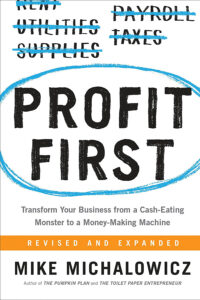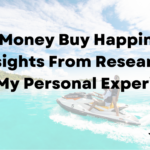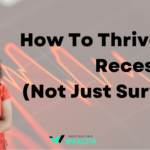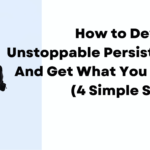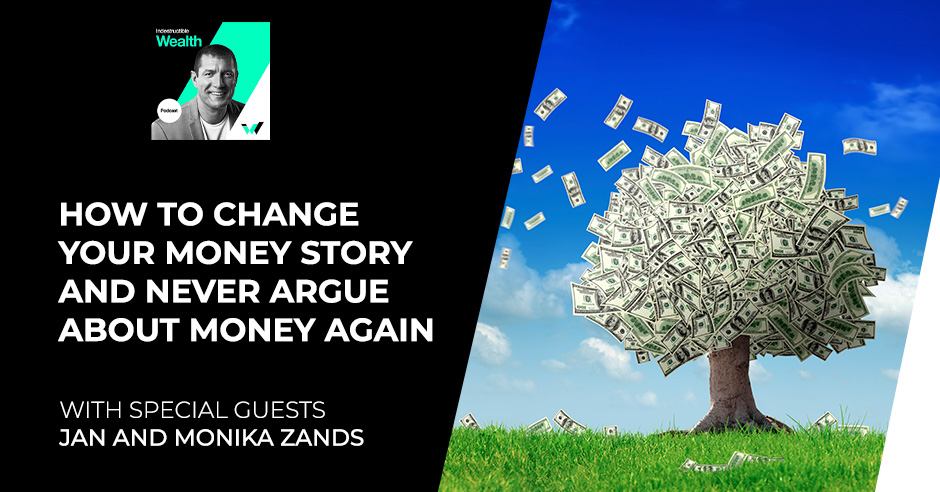
Money is great! You know what’s even better? Not arguing about it with your spouse. Jan and Monika Zands join us to discuss the power of strong relationships, and how to change your money story and mindset to be a positive partner. P.S. I’ve been working with them for years, and they’ve made a huge difference in my marriage. You don’t want to miss this one!
You can find Jan and Monika at janandmonika.com and on YouTube at youtube.com/janandmonika
My book, “Building Indestructible Wealth: The Six Figure Earners Guide to a Multimillion Dollar Portfolio,” just launched. Get your print and audiobook copies and a few other timely insights into what to invest in right now at this link: https://bit.ly/3xjGFQ7
Do you have a question you would like me to answer on the podcast? Follow me on IG: @indestructiblewealth and send a message, or visit me at www.myindestructiblewealth.com for more resources (and check out the new blog page while you are there!)
—
Table of Contents
Listen to the podcast here
How To Change Your Money Story And Never Argue About Money Again, With Special Guests Jan And Monika Zands
I’m excited about this episode. I have been trying to get this couple on my show for quite some time but they have been in several life transitions and moving. They are my business coaches, life coaches, relationship coaches, and spiritual coaches. I’ve been working with this couple for at least a couple of years now. They have helped me quite a bit. We will dive into that as we go through the show. I want to introduce to you my amazing coaches, Jan and Monika Zands. Thanks for coming to the show. I appreciate you so much for being here.
Thank you so much. That’s such a beautiful and surprising introduction. I love it.
You have made a big difference for my wife and me. I want to share it with the rest of my audience. It’s a different show in terms of this isn’t going to be only about money. Most of my shows are about making money, what to do with your money, and how to invest it properly. We’re certainly going to talk about that but I’m sure, based on your expertise, that you can help the audience with multiple areas of life. We will certainly be diving into that. First off, tell us about your background. How did you get into the coaching business? How did everything transpire to where you are?
Thank you so much for having us, Jack. The way that we got here was that we needed help ourselves. We fell in love in college and had a beautiful relationship. Once we got out of college and got into the real world, things weren’t working. We loved each other but with work, life happening differently, and bills happening, we suddenly found ourselves arguing a lot. We found ourselves not communicating. We didn’t know how to do relationships. We didn’t know how to do life together.
Someone recommended a life coach. When we started working with that person, they started showing us that we only knew how to do relationships and life the way that we knew how, which is based on what we learned from our parents, what we learned from life, and what we learned from all of our experiences. The way that I knew it was very different from the way that Monika knew.
It was very different because, in the households that we came from, we did conversations differently. We did conflict resolution differently. We didn’t even know what we were doing. As a result, we started to learn the way that you’re doing it is one way but there are multiple ways of doing things, having conversations, seeing yourself, and getting into a space of self-awareness where we’re not just doing relationships but we’re observing ourselves in a relationship, seeing how we’re doing it, and saying, “Maybe we didn’t do that the right way. Maybe I could have done it differently.”
Once we started doing that, it changed our life. That sent us on a lifelong journey of self-awareness and personal growth. That was in multiple areas. Eventually, we were both in Corporate America. We were both doing different things in business, but the thing that impacted our lives was a coach. We said, “This is a fulfilling life if we can pay this forward and help other people the way somebody helped us.”
When was that? What timeframe? How long ago? How long were you coaching with them?
We started coaching with our coach in 1999. We were with her for many years until she passed. She passed very young. Along the way having met her, we don’t believe in one tool or one toolbox. You probably know this from all of your walks of life. She was our coach. We would also do different programs. Eventually, we came upon a Master’s program where we got a Master’s in Spiritual Psychology.
That also rounded out what our offerings were because, on the one side, we were learning communication skills, leadership and optimization for business. She was helping us work on our relationship. On the other hand, there was this deep longing to personally grow and feel like I’m not becoming who I am for my partner and my marriage. I’m becoming who I am so I can be a great individual or a great person on this planet. We constantly are looking for opportunities to grow, learn, and continue to pursue because there are deeper layers to peel back.
How do you describe spiritual psychology? I think of it as trying to describe Bitcoin. How do you describe Bitcoin? Try to have a conversation and tell somebody what Bitcoin is. Good luck. Tell me what spiritual psychology is. This is exactly like Bitcoin. You’re making stuff up as you go. I love that.
The things you were taught as a child are only one way of doing things. There are multiple ways of doing things. Share on XIt’s the conscious awakening of your unconditional love. Let me explain what that means. It’s being intentional where you are doing things, waking up the part inside of you and activating it, and being unconditionally loving. Here’s what that means for us in terms of spiritual psychology. This is a different conversation from what you probably have, but the conversation is that there’s a belief. There’s a principle in spiritual psychology, which is that you are not a human being with a soul. You are a spiritual being having a human experience.
As you’re going through life, people call it a soul. People say your energy. Whatever it is that’s making you tick, in spiritual psychology, it is defined as your divinity or you are loved. The thing that’s making you move around is some sort of love energy in very simplistic terms. If that’s your most authentic self, then how do you move through all the traumas that have happened in life and all of the stuff that you carry around? “That didn’t work out the way that I wanted to. I’m never going to do that again. That person wasn’t very nice. I’m going to hold a grudge against them.” How do you release all of those things to get back to your most authentic self, which is the love?
A lot of us have a hard time releasing grudges. Personally, I have a few people on my so-called hit list. I remember the movie Billy Madison and the character. He had this hit list that he was drawing out on a piece of paper. As he forgave them, he crossed them off his list. If he took them out, he crossed them off. I’m thinking about this in terms of, “As humans, how do we get past these things that people do?” In business, people try to steal from me. They are sometimes successful. You have trolls. I didn’t know that I was going to go up against trolls or people that were going to hack my Instagram account, pretend that it was me, and try to scam my followers. They create this feeling inside. It’s tough to forgive.
Part of what is important about this is that we were conditioned or taught societally to understand that we had a certain role. That decision was made by the upbringing and the past. That was our mother if we had a mother, and the upbringing, decisions and experience by our father if we had a father, or whoever was our primary caregiver growing up. We saw what they did, whoever that person or those people were. We then go to school. That caregiver, teacher or mentor showed us another perspective and belief system.
Little by little, we began to have this unbelievably expansive view of what’s possible for us. Little by little based on other people’s experiences and visions, that viewpoint got smaller. We begin to define ourselves from all the constraints of the ideas, perceptions, and beliefs that were around us. It can be very hard to understand how to unlock that expression. We then see the world through that lens, and that lens becomes what’s right. When anything in the world is not according to that lens, it’s wrong.
When we’re in a right-wrong perspective, we have entertained judgment. The minute we bring judgment into our experience, we now have a series of things that can be triggered and create a bunch of inner unresolved material. When that inner unresolved material happens, we’re walking along in our day, someone cuts us off in traffic, and we have decided that cutting off in traffic is bad and wrong, now we have a grudge against that person who’s driving that car.
If I’m a healthy human being and able to process my feelings, I’ll let them go. A few minutes later, I’ll listen to my radio, be on a phone call, and ignore the person that cut me off. If I don’t have that capacity or if I cannot let that go and I hold onto it and it makes me angrier, I might experience needing to run them off the road. You have these crazy experiences of road rage. Is the person rageful? Probably not. What the person has is unresolved material within that has not been addressed and becomes triggerable. Once triggered, the sky is the limit of what the response will be.
The goal is to identify over time what are those things that are unresolved inside of me. The work there is to do is healing those wounds, traumas, upsets, and things so they are no longer triggerable. To do that, in spiritual psychology, we have another comment that says, “Healing is the application of loving to the parts inside that hurt.” i.e. the unresolved material triggers a part inside of us, and that part is hurt. If we can heal that part by giving it resources and tools to know how to heal itself, then we won’t respond, dump, hurt, and explode onto people.
It’s funny you mentioned the auto road rage. We’re coming back from Cabo and driving South of Chicago. The busy crowded highway was tight, consolidated down from construction. The car came into our lane and hit us by going 70 miles an hour. We followed them. I flashed my lights to try and get him to pull over so we could get the police to come and get a police report, insurance exchange, and all of that. They wouldn’t pull over.
Normally, before having coached with you, my perspective would be that they’re trying to hit and run and get away with it. When I backed away, thought about this, and reframed it, I said, “They’re probably scared because they don’t know me and who’s in this car. We’re in the South side of Chicago. They’re probably as scared of me as I’m scared of who’s in their car.” They took off. There’s no upset. I understand what happened. It’s fine. I forgive them. It’s all good.

Change Your Money Story: Spiritual psychology is the conscious awakening of your unconditional loving. That means doing things that are activating the part inside of you and actually being unconditional loving.
That is beautiful work. That’s a perspective shift because you didn’t know what was going on with them. You’re making up the meaning because you don’t know if they’re bad people and they did it on purpose. You don’t know if they’re on drugs. You don’t know if they’re scared. You’re making up the meaning. You said, “I’m going to assume that this is the reason why. When I assumed that, it makes me let it go. It makes me not carry a grudge around. It makes me feel good versus this other one.” That’s great work. I want to say one other thing. When you talked to me and Monika, we provide different perspectives as well.
Good cop/bad cop, for example?
No, but a circle and a square sometimes.
I’m a circle.
I am a square.
She’s the bad cop too.
In answering your previous question, there are two things that I wanted to share. You have this list of these people, or anybody might have this list of grudges. The first thing is they often are living carefree. Whoever is carrying the grudge is the one who’s carrying the weight around of that anger, negative energy or suffering, “That person tried to do this to me. That person did this to me. It pisses me off.” It could be very real. It could be like, “They tried to screw me. They tried to take the money and food out of my family’s mouths. They took years of suffering.”
It’s real but the first is the awareness that we’re the ones carrying it around. They’re probably doing whatever. We’re the ones who are carrying it around. Do we want to be carrying that around? Is it serving us? That’s the first thing. The second thing is as you continue to do the work, you might say, “This person tried to do this. This was bad. Why should I forgive them and move on?”
If you are out in the jungle and a lion tried to eat you, you would get away from it. At some point, you would go, “That’s what the lion does. I’m not going to carry around this weight, this upset, and this anger that the lion tried to eat me. The lion is just the lion.” These people are what they are. They’re not necessarily kind and loving people. They’re not necessarily the kind of people you want in your life but they are exactly as they are. Being upset about it is not necessarily logical.
Like your example in the car, you don’t know the thousands of things they went through in their life to become that way. They may have had the most horrific upbringing you could have ever imagined. If you were to be faced with the same horrific upbringing that they had, you might opt to do the same things. You might have lost your sense of reality, but we assume they’re like us and that they’re doing these things because they’re mentally, emotionally, and energetically stable as we are. They may not be.
You are not a human being with a soul. You are a spiritual being having a human experience. Share on XWe go into life and make a bunch of assumptions. If you’ve ever read or if you haven’t read the book, The Four Agreements, I highly recommend it because it begins to help you understand that the perceptions that you have are based on your experience of the world around you, but they’re not serving the outcomes that you’re longing for.
That’s good stuff. I wholeheartedly agree with everything you said. Thank you for that. How did you get into coaching? How long have you been coaching? You talked a little bit about having your coach, but then how did that metamorphosize into you having your coaching practice that’s very successful? I know a lot of people that speak very highly of you. What did that transition look like?
The stories are very different. Why don’t you go first?
I was going to tell your story. Do you want me to tell mine?
Go ahead and tell my story.
From the way you’re talking, I’m guessing there was a major adversity in your life that shifted you in a completely different direction.
I was going to tell the more logical version, and then you go and tell your story about the truck. We both worked in Corporate America. I was working in the entertainment industry. I have a Master’s in Screenwriting from UCLA Film School. I was going to be a big Hollywood director, producer and writer. That was my path. Monika also was working in the entertainment industry. She worked at Pixar for a while. She was working at ILM and then Northrop Grumman in their content creation department.
While she was there, she was spending hours in an editing bay in a closed room, working with people, and creating content. The part that she enjoyed the most was not when she was there but when she was out speaking with people and hearing about people’s lives. She would be interviewing people for whatever it was that she was working on. This is what she was doing in her job. In the meantime, in her life, we were taking all of these programs, getting certifications, and learning all of this stuff but she wasn’t using it in her life so much.
One day, I got hit by a truck in a crosswalk. I was not expecting to. I was in a crosswalk and I never saw the truck coming. It was a Southern California gas company truck. You can imagine a very large truck, not your little Ford 150. Normally, you don’t survive that accident.
I don’t even know how would you survive that. That doesn’t even make sense.

Change Your Money Story: If you are out in the jungle and a lion tried to eat you, don’t go around carrying this anger that the lion tried to eat you. That’s what a lion does. Stop carrying that suffering with you.
The ambulance and the police said it was a miracle. I had been training for a triathlon. My body was pliable, and because I never saw it coming, I didn’t tense up. I flew away from the car instead of going under the axle or through the windshield. When I got hit by that car because I never saw it, I left my body and went up above. I witnessed the entire experience from above. In that interchange, when I came back to life, I was in the back of an ambulance driving to the hospital.
I had cuts, scrapes and bruises but I had no broken bones. What I had was my internal system started shutting down over the next several months. For four months, I was in bed exclusively. Slowly but surely over the next year, I was healing myself. I got very angry because I felt like, “If I’m going to be in this much pain, and I don’t know what’s going to happen with my body, why did I stay alive?”
That calling upon my life became the development of a relationship with God, spirit, the universe, or something way bigger than me because I believed that something was at work that wanted me to stay. While I was sitting in bed, I thought, “I can’t work ten hours a day in a dark room by myself to edit videos for some other thing if God has a calling on my life.” I began to uncover what I love to do and how I like to serve. What I loved was supporting people in healing the things that were causing them to suffer.
I wanted people to live lives that were worthy of their greatness. I wanted people to awaken to how great they were and not keep living the small lives that they were destined to live because someone told them along the way that they couldn’t do something. That was the impetus for me. I had a coach for years trying to work on our marriage and our communication. When that was working, it was like, “Now that I had a calling, let me go and do whatever I need to do to be able to serve people in this way.”
That’s an incredible story. Do you look back at that event at this point and say, “That was a blessing. It forced me to go in a different direction,” or are you not there?
I have a podcast called Wake Up! The reason that Wake Up! was born is that I believe that people have these moments. They can be very traumatic or teeny-tiny, “I got fired. I woke up to what my real purpose on this planet was, what my real calling was, or what my real intention was.” With the truck, thank God that happened because it was my wake-up moment. It was the beginning of everything in my life-changing. I would never be the woman or the girl who got hit by that truck. I would now forever be the woman that learned what happens after you survive getting hit by a truck. That has been an unbelievably expansive and amplifying experience in my life.
What year was that? At what point did you say, “We want to start coaching. We’re taking on clients. We’re going to help change people’s lives and heal their suffering.”
2002 was the accident. I started my Master’s program in 2007. I was coaching people in a business mastery course and getting coached starting in 2003 or 2004. It took about a year to heal. Shortly thereafter, it was like, “I’m going to go back to work for a little bit only until I can develop this coaching thing.”
One thing to note is that she was making good money. I was entrepreneurial at that time. I had left Hollywood and was building a software business, so I wasn’t making good money at that time. She was the breadwinner. She never would have left and done that transition if this event hadn’t happened.
We can say that about a lot of things in life, “If this bad thing hadn’t happened, I wouldn’t have learned this lesson and gone into this course.” That’s why the main thing Napoleon Hill says in his book Think and Grow Rich is, “In every adversity lies a seed of an equivalent or greater benefit.” It’s tough when you’re right in the middle of it to see that there’s no benefit here. Most of the time when I’m going through something, I’m not looking at it like, “This is not a benefit in my life. This is terrible,” but then over the course of time, it could be a year or ten years, I look back and I’m like, “I did need to learn that lesson.”
Don't be destined to live a small life because someone told you that you couldn't do something. Share on XThat’s one of the things that we teach and live. How quickly can you get to that perspective? Do you need a day? Do you need a couple of weeks or a couple of years before you can look at something as, “How is it a gift? How is it serving me?” The faster you can get to it, the less suffering you experience in your life.
Even more importantly, my perspective is the less suffering you cause all of those you’re in contact with because you aren’t the only one suffering when you’re suffering. When you’re suffering, the people that love you also suffer because they experience your suffering and don’t always know how to help you through it. When you are suffering and you work, the people that are around you may get the shortness of your temper, the impatience that you have, and the judgment that you may have of them because they trigger something in you.
The repercussion of someone’s suffering is way bigger of a ripple than just impacting them. Although people think, “I can separate the way I feel with my professional environment,” only an expert who has a lot of skills can do that. More often than not, especially people who have never had a coach, have never been in therapy, or have never gotten help outside of what they know have no idea how to manifest what they are, how they’re doing, and how to be neutral in any other environment.
I’ve heard you talk about this but I haven’t gotten to dive into this with you. I don’t know at what point this started within the last few years. You were making good money but you are still struggling financially. You decided to read a book called Profit First and implement the program. Do you want to tell me a little bit about that?
We were making good money, yet for some reason, there was not enough to pay bills. It was always like, “There’s never enough.” We could have a month where we made very little or we could have a couple of months where we made a lot. It was still the same thing. It didn’t make sense. We had tried everything.
There were two big catalysts that began the downward spiral of our money journey also. One was the accident. There are a lot of out-of-pocket expenses and a lot of things that start to happen when you’re in an accident like that. Jan had also a health scare. There were a lot of out-of-pocket expenses with that. He was brilliant. This guy was trying to be entrepreneurial and starting his software company. You said people were stealing from you. We had a crappy situation where the person that was in charge of some of the investing money for his company hit the road.
All of a sudden, we were belly up having to pay all of the people that we were responsible for without the investor. There were many moments in our journey where we said, “We didn’t expect this. There are $100,000, $500,000, or $50,000.” That accumulation of money in a very short amount of time creates a lot of stress and strain. On top of it, we weren’t good at knowing how to manage it, take care of it, and where to put it. We didn’t do any of that right. We were upside down.
We had the mindset, “We need to work harder. We need to make more money. Once we work harder and once we make more money, then we’re going to be able to pay this debt down and figure it out.” We were grinding all the time because of that. We tried so many different systems, went to different classes, and tried to implement systems but none of them stuck and worked for us. They may work for other people. They didn’t work for us.
One day, Monika called me and said, “I found it.” She was listening to a podcast. They referenced the book Profit First by Mike Michalowicz. She immediately downloaded it and started listening to it. It changed our lives. The reason it changed our lives is that we had heard all the time, “You’ve got to pay yourself first,” but we didn’t have enough money to pay our bills and other people. How do we pay ourselves first when we don’t even have enough to pay other people?
Profit First makes it a behavior that you can build over time or a muscle. One, it taught us a couple of lessons that changed our whole mindset, which we can talk about but also in terms of behavior. Even if we were just paying ourselves $1 and putting $1 away for taxes with every check that we got or something like that, it started to build the muscle of paying ourselves first. We were able to increase how much we were paying ourselves first over time. We thought, “It’s either a lot or zero.”

Change Your Money Story: How do you pay yourself first if you don’t have the money to pay your bills? You have to make paying yourself a muscle that you can build over time. With every check that you get, keep a dollar.
We also thought that getting out of debt was a one-time transaction. Getting out of debt doesn’t take 15 years because we spent 15 years not getting out of debt. We were like, “We have to wait until we make enough money where we have that windfall and 1, 2 or 3 months. We made $50,000 to $100,000 in those months. We cover our debt, and we’re done.” It never worked trying to get out of debt month after month and year after year. It never worked.
The concept that changed our lives was Parkinson’s Law. Parkinson’s Law is the law that the amount of a resource that is used is equal to the amount of resource that’s available. It’s like throwing your child a birthday party. It’s Sunday at noon. You find yourself every year on Sunday at 11:55 putting everything together. Even though you’ve been planning and doing it, for some reason, it all comes together at the last minute. How many things come together at the last minute?
The amount of resource that’s available is the amount of resource that’s used. This is across multiple things. It’s like time. If you tell the universe, “I’m available to work 24 hours a day,” from the minute you wake up, you’re going to be grabbing your phone and you’re going to be working until you’re going to fall asleep. You’re going to be one of those people falling asleep with your phone in your hand. Because you’re telling the universe, “This is how much time I have,” it will consume it and use it.
If you have one bank account, which is where all your money is coming in, and that same bank account is the bank account that you use for paying your life, according to Parkinson’s Law, everything that’s coming in that bank account will be used because it will be required. Even if you get more money that month, there will be either an unexpected bill, a medical bill, a car bill or something or you will think, “Look at how much money we have. We can finally buy the thing that we have been wanting for a while.”
When we heard that concept, it’s like, “If you take some money out, put it into different accounts first, and then put a certain amount into the account that’s paying for your life, then that amount is what will be used to pay for your life.” Your life will acclimate. What I mean by that is you are able to get by with less money at some point earlier in your life. You figured it out. If that’s what you’re telling yourself that you have, you will get creative and figure it out. It creates innovation and creativity on how to do things differently when you see, “This is what I have,” versus, “I have everything. I have this much and I’ll just spend it.”
What does that system look like? It seems like you’re referencing multiple bank accounts. Money flows into one, but then it gets dispersed out to multiple accounts. Each had its specific purpose of where that money gets allocated to.
I’m a geek. I love spreadsheets. I have this beautiful spreadsheet where we have our multiple accounts. The accounts that we use, which is what’s recommended in the book, is you have your profit account and your tax account. Those are the very first two that always get paid first. You have an owner’s compensation account because this is for your business. You have an operating expenses account. What we did was determine what are the percentages that we want to allocate. The other account is income. Income is only the money coming in.
It’s a holding account. It’s money directly deposited or cash put in. You never spend from that account. That’s simply an allocation account.
The money comes from income. I put it in my spreadsheet. Every Friday, I look at how much is in there. It calculates the percentages. This percentage goes to pay us. It’s our profit. This percentage is our tax operating expenses, and then owner’s compensation. Immediately after that, I take the money out of the profit and tax accounts, and move them to a no-touch profit account and a no-touch tax account, which is at a bank that was in a different state. We don’t have an ATM card. We don’t have Zelle activated it. Money goes in and stays there until we need to use it for a specific purpose like paying taxes and it’s hard to get to.
What has this done for you since you implemented the system?
When you're suffering, you aren't the only one suffering. The people that love you suffer as well. Share on XIt changed our lives. First of all, it has done a number of things. It allowed us to get out of debt, which we carried around for so many years. As a result of getting out of debt, it raised our credit score substantially. We didn’t have good credit because we had so much debt and bad habits. Once we were able to take care of that, it allowed us to take advantage of the housing market. We owned our home for many years. We were able to refinance our home, take some money, and buy another home. We own two homes in two different cities that are both increasing in value significantly, which is very exciting. We never would have been able to do anything like that because we would have been like, “How are we paying our debt down?”
Are you seeing this working for other entrepreneurs and students of yours? Are you helping them implement the plan?
If they implement it and stick to it, we are seeing a remarkable impact. We have certain people that took a 90-day program with us. During those 90 days, they put away $15,000. They were never putting money away. That’s a result of how much money they were making but in the past, they would spend that $15,000. It would have been gone on something.
They would’ve gotten a jet ski, a nicer car, or some type of liability. There’s no doubt.
They would have justified it. Instead, not only did they make that money but a year after that, they had a baby, and they already have the college fund for the baby started. There’s that. There are people that are unbelievably organized in what they’re doing. They have been able to invest in not only the growth of their business but they have also been able to invest percentages into the growth of other people in their businesses as business partners. Their business has grown. They have a vision of how they can impact other people’s lives as well as impact their own lives.
I’ll add to that. We have also had people that got married.
There were three people that bought their first home.
We got this beautiful note saying, “We were able to pay for our wedding. We were able to have a deposit for our first home. We were able to do all of these things because of implementing the system.” It also shifts relationships. One of the things that we do that they don’t talk about in the book is if you’re doing Profit First for your business, then do it also for your life. If you have one personal bank account that you’re using for everything, then the world is going to use all of that as well. I have a second spreadsheet. When we pay ourselves, then we have a percentage that’s allocated to her jewelry account. We have a percentage that’s allocated to our travel account. We have a percentage allocated to my fund account. That’s my money.
That’s where he got his golf clubs from.
I’m able to do things that I want to do. She’s able to get her hair and her nails done, get massages, or do whatever it is that she wants to do that normally or maybe I may judge and go, “We only have this much money. Why are you spending it on these things?” When it’s allocated, it’s her money, I have my money, and we have a travel fund and things like that, there’s no argument about it because we have the main expense account. Life is covered through that. This has not only impacted people in being able to pay for things, but it also removes tension because they don’t have that similar argument which is, “We need this money.” You’re doing it together as a couple. It creates a team around money where there’s often so much tension.

Change Your Money Story: If you’re doing a profit first for your business, then do it also for your life. If you just have one personal bank account that you’re using for everything, then the world is going to use all of that as well.
I was reading a book. It’s called And Then God Created Golf. It’s a great book helping the Christian golfer navigate the incredible complexity. The chapter was on buying equipment. We buy equipment because we think that it’s going to cause us to get better as your new clubs helped you to get better.
For the first month, it felt like my new clubs helped me get better.
We are now a year later.
In terms of perspective shifts, I can’t tell you how often I say, “The universe wants me to practice my sand shots.”
I’m struggling out on the sand. I’m a kindred spirit here. I feel you. A lot of people come to you for coaching on how to make more money. They’re coming to you as entrepreneurs or even professionals. They want to increase their income and earning power. Surely, you’re coaching people on relationship issues and such. As far as helping them increase their earning power, what are some common themes that you see, blind spots, or things people aren’t aware of that are holding them back? What do you go to work on with them to help them to calm the type of person and increase their overall level of mindset and being so that they can be the type of person that makes more money?
There’s inner and outer work. The outer work is using Profit First, dealing with your credit score, understanding what your spending habits were, and evaluating the world that you live in, and what you do in it that’s causing a consistent outcome that isn’t necessarily the outcome you want. The inner work is, “Where did you learn this? Who taught you about money or not? Who showed you how to spend or not? Who showed you how to judge yourself or think you’re inadequate and don’t deserve some of the things that you want? Who taught you how you have to work hard, never sleep, and do all the things to be worthy of the money that you’re making? Who taught you all of that?”
If you don’t get that past out of your present or your future, you will keep repeating the past that was taught to you. We go to work on that. We help people understand, “You make the decisions in your life. Those things are not happening at you or onto you. They’re happening for you. How do you use them so that you can then navigate through the things that are coming as opportunities for growth and learning?” What we call that is having a growth orientation to life. We teach people to have that growth orientation to life.
You may have heard of the psychologist who’s a Stanford professor named Carol Dweck. She talks about the fixed and growth mindset. People that are in a fixed mindset believe, “If my father and mother were poor, I’m going to be poor too. That’s the way it is,” but if you have a growth mindset, you say, “My father made these choices. My mother made these choices. They taught me about this. I can make these different choices.”
As a result, people have this opening, “I’m not a victim too. I’m not at the effect of these circumstances that I’m in. I can cause a shift and make new choices. As a result of these new choices, I can have new outcomes.” We teach people a lot. We give them many different tools on how to navigate the misunderstandings that they have created in their heads and the judgments against themselves or against others that are keeping them stuck in the patterns that they’re currently in.
Here’s an example. Someone will come to us and be part of our program. We will walk them through a very intricate deconstruction of their money story, “How did you get to the story, the habits, and the beliefs you hold today? Let’s rewrite that story.” We go through step-by-step processes that help people understand where they learned what they learned, how to do something about it, what to do differently, how to practice it, and how to deal with what comes up when they’re trying to change a habit or pattern.
If you don't get your past out of your present or your future, you will keep repeating the past that was taught to you. Share on XAs a result, people are having pretty substantial breakthroughs because they’re letting go of this past that has been running them and governing their choices. They’re free to make any choice. You start putting in front of them all of these positive and powerful choices, including introducing them to you, Jack, and your Indestructible Wealth courses, your book, and all your things.
They start getting this well-rounded toolbox of how to navigate this newfound appreciation for, “I deserve the money that I’m making. I know how to allocate the money that I have. I know how not to spend it in one place. I know how to put my play money in one place. I know how to put money in my investment house in another place. I know how to put money in my ‘how do I live day to day’ coffer.” As a result, people are having amazing experiences.
The inner work from what I’m getting from you is more important than the outer work, although you can’t discount the outer work.
They’re equal. There was that book, The Secret, that came out many years ago. I’ll talk about the Law of Attraction. You can’t just be thinking, “I’m going to manifest this if habits come to me.”
“Now I’m healed.”
You do have to do the work.
I had James Ray who was the primary voice of The Secret or one of the main business philosophers. He was on my show in Episode 30. He talked a lot about the Law of Attraction and The Secret. It’s funny you brought that up.
We heard one of the other contributors, Dr. Michael Beckwith, talk about how there was something missing from The Secret, which is the Law of Attraction in action. You need to also have the action. Another thing that we do with people in this regard is people will just be working often. It’s like, “I need to do this. I’m on the treadmill. I’m going all the time.”
You have someone stop and say, “What do you want your life to look like? What brings you joy?” If you take the lid off of what you’ve been taught and what you think is possible, imagine what would you like your life to be, and then look at the path that you’re on, often the path that people are on is not taking them to where they want to go. They’re on a path of how are they paying this month’s bills. They’re stuck in this situation.
Having people release what they think is possible, connect to their hearts, and do the work of, “How do I release the things that I’m not worthy of, that I’m not capable of, and scary for me to do?” That’s the inner work, but then going to the outer work of mapping, “Now that you could be that person and you see where you want to go, what are the steps that you can implement over time to achieve that?”

Change Your Money Story: If you have a growth orientation to life, you will ask different questions about whatever it is that challenges you. But if you don’t have that growth orientation, you’ll just get stuck in whatever you’re doing.
Also, how do you navigate when things become challenges in your life that don’t define who you are but you’ve let them define you? If you get fired from a job, it doesn’t mean you’re bad. It means that job, that boss, that environment, or things that you don’t know how to do or that you didn’t do right happened. What does that mean? You could learn new things. You could go to additional schools and resources. You could learn new communication so you can be a better leader.
Whatever the thing that challenges you, if you have a growth orientation to life, you start to ask different questions, but if you don’t have that growth orientation, you ask questions, “Why does this always happen to me? Why am I stuck here? It’s never going to change. I have to suck it up and keep doing it,” circumstances never change. The angrier we get, the more grudges we hold, the sadder we get, the more hurt we get, the more misunderstood we feel, the more we shut down, and the less brilliance we bring into the world or the field that we’re in.
In terms of money stories, this is going into the inner work. That’s your specialty. I’m probably more of the specialty of the outer work. I’m thinking this through as I hear you explain it. What are some of the money stories that you get, maybe the top 2 or 3 most common, that you can help people work through?
We do a whole exercise where people document what they saw their parents go through. As a result, what did they learn about money? That’s part of their money story. One of the things we have them do is write down the cliches that they heard. The cliche that I heard was if you work hard and you’re a good person, it will all work out. It is a different one than most people heard. That got me into trouble because I kept putting things on credit cards and kept working hard thinking it was all going to work out. “Money doesn’t grow on trees.”
That was my father.
“We can’t afford that. That’s not for us. That’s for other people.”
“You will never be able to have that. That’s not part of our story.”
It’s tough when you get those implanted into the roots of your being or your subconscious mind. It’s almost like a seed is planted. We allow it to grow and fester. You have a lot of work to do to be able to get those cleared out and take on a whole new perspective for your future, growth, possibilities and abundance.
Those beliefs are the same type of unresolved material that we were talking about earlier in regard to grudges. They’re the kinds of things in this invisible backpack that we’re carrying around. While we’re doing the work to release the grudges and other things that we’re carrying around, we also want to release those beliefs that our parents and life taught us that we took on as the truth, but it was someone else’s truth. It was a moment but it’s not the truth about how things are.
I was walking with my dad. Both Jan and I are first-generation from immigrant parents. Jan’s parents came from Cuba. My father came from Germany. My dad has had an up-and-down life. It was his birthday. He turned 81. He has worked so hard to make it. He had bad role models as parents. He had very severe and abusive situations growing up. He was a latchkey kid. He moved to the States as a teenager. He got out of Germany and came to the States, the land of possibilities.
Once you forgive yourself every day, you will live a much freer life. Share on XHe will be the first to tell you how unbelievably grateful he is for all of the things that the US has given him and all the opportunities to be whatever he needed because, in Germany, the way that it works is you go to school for whatever you go to school for. That’s your career for the rest of your life. You study for anything. You study to be a waiter, a gas attendant or an engineer.
He had this experience, “I could be whatever I wanted. I could do whatever I wanted.” He shared with me, “I’m so grateful that you didn’t follow my path. I’m so grateful that my stuff did not rub off on you. I’m so grateful that you made different choices than I’ve made in my life.” His life for him has felt like a world of struggle. I have been unwilling to have a life where money is the reason why I’m angry, sad, frustrated, and limited. I am not willing to do that.
For many years, until Jan and I did this work, it was going down that path. I was going to end up exactly like my father, making choices that dictated the glass ceiling that was on my head for being able to change that circumstance. I was no longer willing to have my lineage or my generational heritage define my future. All the inner work also contributed. I changed the patterns of my generational past so that my future generations will never have the same stories about money.
We’re running out of time here. There are two more quick questions. The final question that I usually ask to wrap up everything is this. What’s the one question that I should have asked you but I didn’t? Is there one topic or something you’re so passionate about that you want to make sure you drive home to the audience that I didn’t give you a chance yet to talk about? Give me your best.
Arguing about money is one of the biggest causes of upset and divorces in relationships. How do you help couples stop arguing about money? The very short answer that I give to that is what we talked about at the very beginning, which is your way is not the only way, when I learned how I was doing life and she learned how she did life. When you can know as a couple that you have your money story and the way you do money, and that they have their way, and if you can appreciate that neither way is the right way, and work together to create your way as a couple, then that’s a big step toward not arguing about money anymore. That would have been my question and my answer.
How do you get through when you wake up to all of the heaviness or weight of how you’ve been doing your life and that probably you’re the reason why it has been hard? All of a sudden, it’s like, “I’ve been blaming everything and everyone else. I’ve been blaming money, my boss, and everything else.” How do you deal with that feeling inside of, “If I’m responsible, what have I done to myself?” The lesson that we love to teach people is a lesson called compassionate self-forgiveness.
You did this with me. It’s very powerful. I still talk about it, think about it, and dwell on it.
It’s so easy for us to say, “I’m sorry to someone else.” More often than not, if someone apologizes to us, we say, “I forgive you.” If you want to ask me to forgive myself for the voice in my head calling myself a jerk or a negative, it is a lot harder for me to say, “I’m sorry to you, Monika. I know how hard you’ve been trying. I see that you are committed to creating a powerful relationship with your husband and your kids. I know that sometimes you haven’t done the best choices. I love you for it. What do we need to do so that we can start correcting those choices and forgiving the past with the choices and the knowledge that you had back then?” If you can do that for yourself all the time until you believe it, you will have a much freer life as you go on the journey to get to the outcomes you want.
To bring that full circle, the grudges that we hold against those people who were the lions, often if you go underneath them, it’s not that I’m upset that they were lions. I’m upset that I put myself in a position where I was there with them, “I should have known better. I was so dumb. How could I not see that?” Those are the bigger upsets than the way that they did the thing because they are just the lions.
That’s powerful. You have programs and one-to-one coaching. What do you have going on that could serve our audience? How do they follow you, get ahold of you, and learn about you?
Every quarter, we do a program. It’s a weekend program called The RICH Relationship. In that program, we’re doing a couple of things. We’re working on the relationship and becoming a team. We’re learning some communication tools and the things to being a team to work together. We’re working on money. We’re working on what is your money story, what is your partner’s money story, and how you let those go to create a new powerful money story together.
We teach Profit First so that people leave that weekend with a system implementing already the bank accounts and how to implement the system so that all the money doesn’t go away. They will implement the thing so that it’s the inner work and the outer work on that weekend. We do that every quarter. They can learn all about that if they go to our website. They either go to TheRICHRelationship.com or JanAndMonika.com.
Are there any social channels that you’re on frequently?
We’re on Instagram with lots of reels and resources. We have a podcast. You can check us out on YouTube. We love to give. That’s part of what this is for us. We felt like we were constantly searching for support and help. When we got it, we were so blessed and relieved that we want to pay that forward as well, whether you do our programs, which we know you will love because they’re awesome. We have a fun and amazing time doing it. We’re real. We bear it all. We share. We don’t hold back. It’s not fluffy. It’s real. We talk about our stories, what we had to overcome, and what we have been through but if you aren’t ready to do those programs, our social media will help you get started.
We have a YouTube channel where we have The RICH Relationship show where we’re teaching you what we do on the weekend, never argue with your partner about money again, how to navigate this stuff, all the tools, lessons, and those kinds of things that we talked about here.
I am confident from personal experience that anybody who comes to you for any level of support is going to come away blessed and with a greater awareness of how to build a better life. Thank you so much for being on my show.
Thank you, Jack. It’s so great. We’re excited to have you on ours.
I have some inner growth work to do before I’m ready for that. Thank you. I appreciate you so much. Everybody, thank you for tuning in. I’m sure you got a lot out of this episode. Make sure to send me any questions that you have or any feedback about this show. I’ll be sure to pass it on. You can directly thank them yourselves for their wisdom. That’s a wrap for this episode. We will see you in the next episode.
Important Links
- Jan and Monika Zands
- The Four Agreements
- Wake Up! – iTunes
- Think and Grow Rich
- Profit First
- And Then God Created Golf
- The Secret
- James Ray – Previous episode
- TheRICHRelationship.com
- YouTube – Jan and Monika Zands
- https://bit.ly/3xjGFQ7
- @IndestructibleWealth – Instagram
About Monika Zands
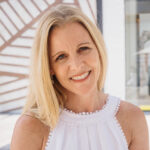 Hi, I’m Monika! I offer executive coaching, corporate team leadership training, organizational strategy, business and marketing programs, and life and relationship coaching. I’ve found that although people achieve excellence in some areas of their life, they often struggle to see their own worth. So, what happens? They make unhealthy choices in their lives and relationships, and this keeps them stuck and stops them from challenging themselves to think and act differently. I provide the consulting, strategizing, coaching and courses needed to help my clients shift their mindset, challenge small thinking, and exponentially increase their productivity and happiness. This helps them produce unprecedented results in their life, business and relationships.
Hi, I’m Monika! I offer executive coaching, corporate team leadership training, organizational strategy, business and marketing programs, and life and relationship coaching. I’ve found that although people achieve excellence in some areas of their life, they often struggle to see their own worth. So, what happens? They make unhealthy choices in their lives and relationships, and this keeps them stuck and stops them from challenging themselves to think and act differently. I provide the consulting, strategizing, coaching and courses needed to help my clients shift their mindset, challenge small thinking, and exponentially increase their productivity and happiness. This helps them produce unprecedented results in their life, business and relationships.

